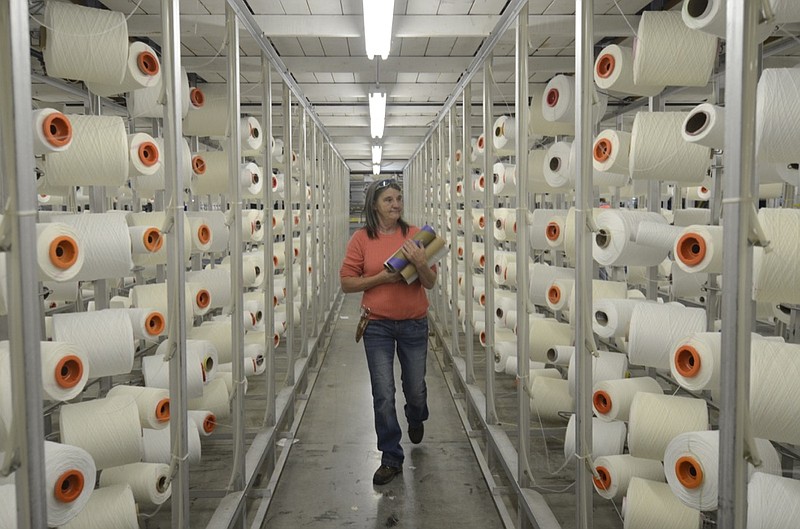Shares of Dixie Group jumped 32% Thursday after the Dalton, Georgia-based carpet maker said its profit margins improved despite lower sales last year.
Dixie's sales fell by 7.5% in 2019 to $374.6 million, but the company reported a profit from continuing operations last year of $15.6 million, compared with a loss from continuing operations in 2018 of nearly $21.5 million. In response, shares of Dixie;s stock increased by 32 cents per share to close at $1.32 per share in an otherwise down market.
Dixie said it realized a $25 million gain, or $1.50 per share from the sale of its Susan Street facility in Santa Ana, California, where it has signed a lease with options for a period of up to 20 years.
Dixie CEO Dan Frierson said last year "was a year of change for both Dixie and the industry" with residential carpet sales down in the high single digits from 2018 levels.
"Despite this difficult year from a profitability perspective, we have put in place the foundation of operational capabilities that should benefit us in the future," Frierson said in an earnings report released before the market opened Thursday.
Frierson said in 2019 the company completed its profit improvement plan it launched in 2017, which has shut down or realigned five of Dixie's production mills and cut the company staff by 20%.
"This plan cost over $18 million to implement and generated over $18 million in annual savings relative to our 2017 cost structure," he said. "Throughout the implementation of this plan our cost of quality has been reduced by over 25%. "
The savings and sale of the Susan Street facility reduced Dixie's debt by over $50 million and Frierson said he anticipates additional cost reductions this year, including changes in our medical plans, raw material reductions and savings in processing of over $5 million per year.
The changes seem to be paying off for the company, even in a tougher market. Dixie's gross profit margin in 2019 was 23%, up from 21.5% gross profit margin in 2018.
Frierson said Dixie's commercial soft surface sales for the year were down over 12% while the commercial soft floorcovering market overall was down marginally.
"Despite the drop in business, we feel that we have positioned Atlas | Masland Contract for growth with one of the most extensive product lines in the commercial business," Frierson said.
Dixie has merged two commercial businesses into Atlas | Masland Contract and Frierson said the company is "positioned with our complete line of broadloom carpet, modular carpet tile, luxury vinyl flooring and commercial rugs to service our customers with excellent service and cutting edge design from our focused operational facilities dedicated to the commercial marketplace."
"Despite the decline in our mass merchant sales, we outpaced the market in the specialty retail segment, where our soft surface sales declined low to mid single digits and our hard surface sales grew by approximately 50%," Frierson said.
Dixie featured about 50 new styles of carpet at Surfaces, the national industry trade show, and Frierson said Dixie "continues to be a leading manufacturer in Stainmaster carpet and are proud to launch some of the most unique and beautiful Stainmaster products on the market."
Contact Dave Flessner at dflessner@timesfreepress.com or at 423-757-6340.
